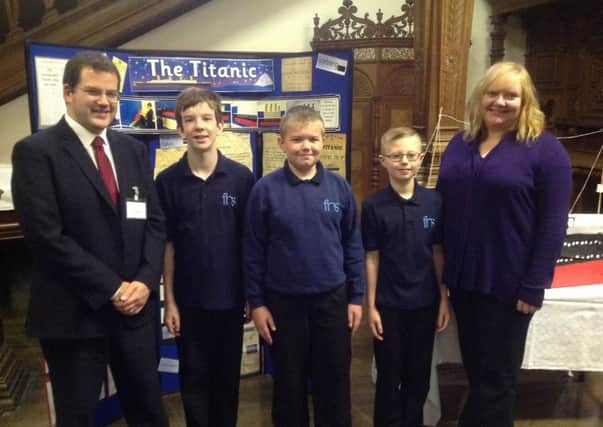Comment: Apprenticeships must include the vulnerable


This week presents an ideal opportunity to raise awareness of the benefits of a Modern Apprenticeship for both employers and young people, as well as highlighting the merit in considering those with additional support needs (ASN) as candidates for such positions.
In February the Scottish Government announced it was on course to exceed its target of 25,000 new modern apprenticeships (MAs) this year and the number of those in MAs had increased by 2 per cent from the same time last year. This is absolutely to be commended as it has helped the Scottish Government bring youth unemployment figures to their lowest since 2009.
Advertisement
Hide AdAdvertisement
Hide AdHowever, figures from Skills Development Scotland show less than 0.4 per cent of those in a Modern Apprenticeship have a declared disability, yet approximately 8 per cent of the 16-24-year-old target population is disabled. This is based upon self-declaration by the individual and there will be instances where people choose not to disclose their status, but this figure is still woefully low. In comparison, figures from the Skills Funding Agency in England indicate a figure of 8.7 per cent.
As a society, we have a collective responsibility to give the most vulnerable the opportunity to realise their full potential. The rewards of getting these young people, many of whom boast excellent skills, include higher loyalty and retention rates. Apprenticeship programmes provide the opportunity to do just this and at the same time help businesses thrive, especially in the sectors where we face skills shortages.
At Falkland House School we are doing all that we can to ensure that our pupils are work ready and work experienced when job and apprenticeship opportunities arise.
Pupils have recently established a contract services company that provides quotes and works for a variety of maintenance jobs in and around the school. The process is informed by real-life experiences and pupils are interviewed for positions within the company, going through the normal application and interview procedures that you would expect in the job market. For certain jobs (such as strimming around the grounds) industry standard courses (City & Guilds or Lantra awards) need to be passed for pupils to be allowed to participate (our current insurers are fully informed for risk assessment purposes).
The range of skills needed for the company matches all abilities and aspirations. Although still in its early stages, we have high hopes for the success of the project. Eventually, pupils will be paid salaries and through this be charged a form of income tax paid back to the company so that it has its own funds to either buy equipment or lease it from the school. If the team elects to buy their equipment they will have to decide upon quality and cost over leasing the school’s equipment. Our aim over the coming years is to develop the project so that a variety of different experiences in an ever widening job sector can be offered. For example: catering for seminar participants using the school; designing and maintaining the school website; painting and decorating rooms on a rotational basis; and creating general handyman and DIY jobs.
We have also recently started an initiative to help equip the boys with the work-ready skills necessary for sustainable employment. Under the supervision of teachers from a variety of subjects the boys have designed and are building a cabin in the school grounds. Due for completion in spring next year, the boys are using this project to work towards an SQA qualification and the cabin will be used as a community resource on the Falkland Estate grounds. Offering learning in this practical way, we have already seen a marked difference in the self-confidence of the boys involved.
In recent years the Scottish Government has taken a number of positive and significant steps for young people in these categories, through the likes of the Employer Recruitment Incentive and Make Young People Your Business campaign, but based on the figures, we need to do more. We need to buy in better from businesses and employers as it is they who can make the vital difference.
As we mark Scottish Apprenticeship Week, I would urge businesses to look beyond the label and look at the skills and talents these young people have by the bucket-load. We must do all we can to help them realise their potential.
• Stuart Jacob is director of Falkland House School and member of the Scottish Children’s Services Coalition www.thescsc.org.uk